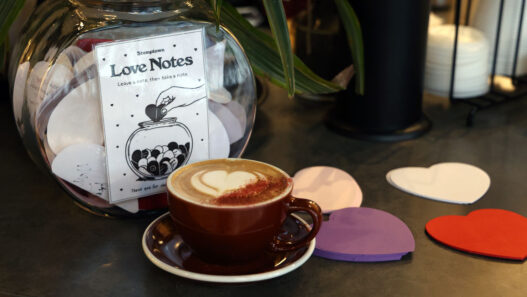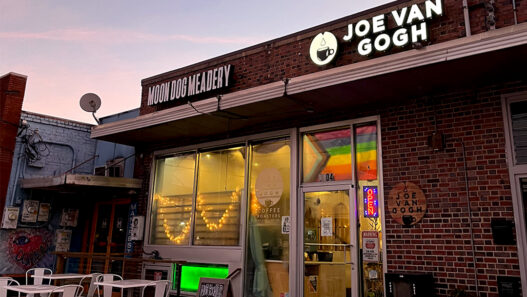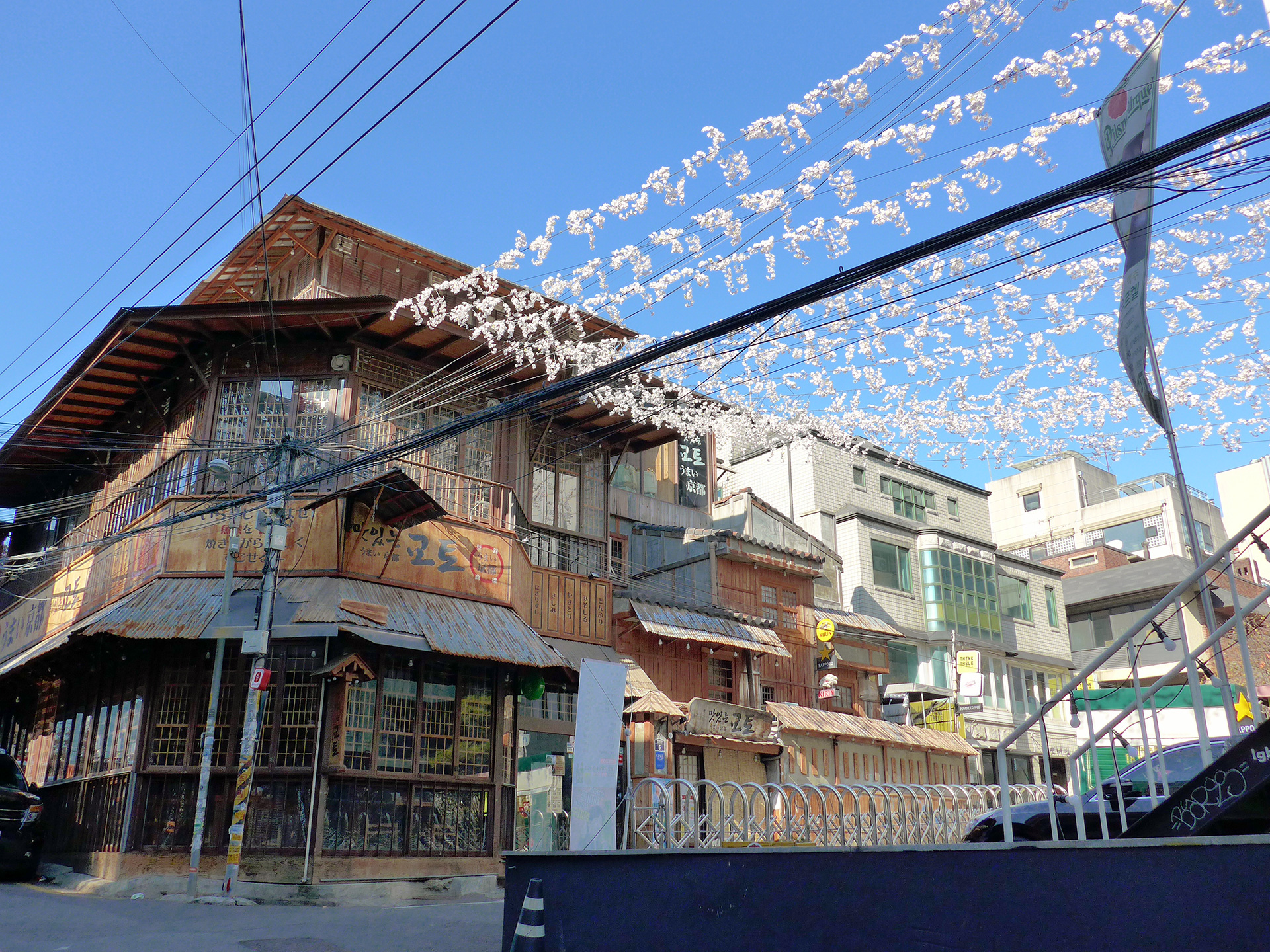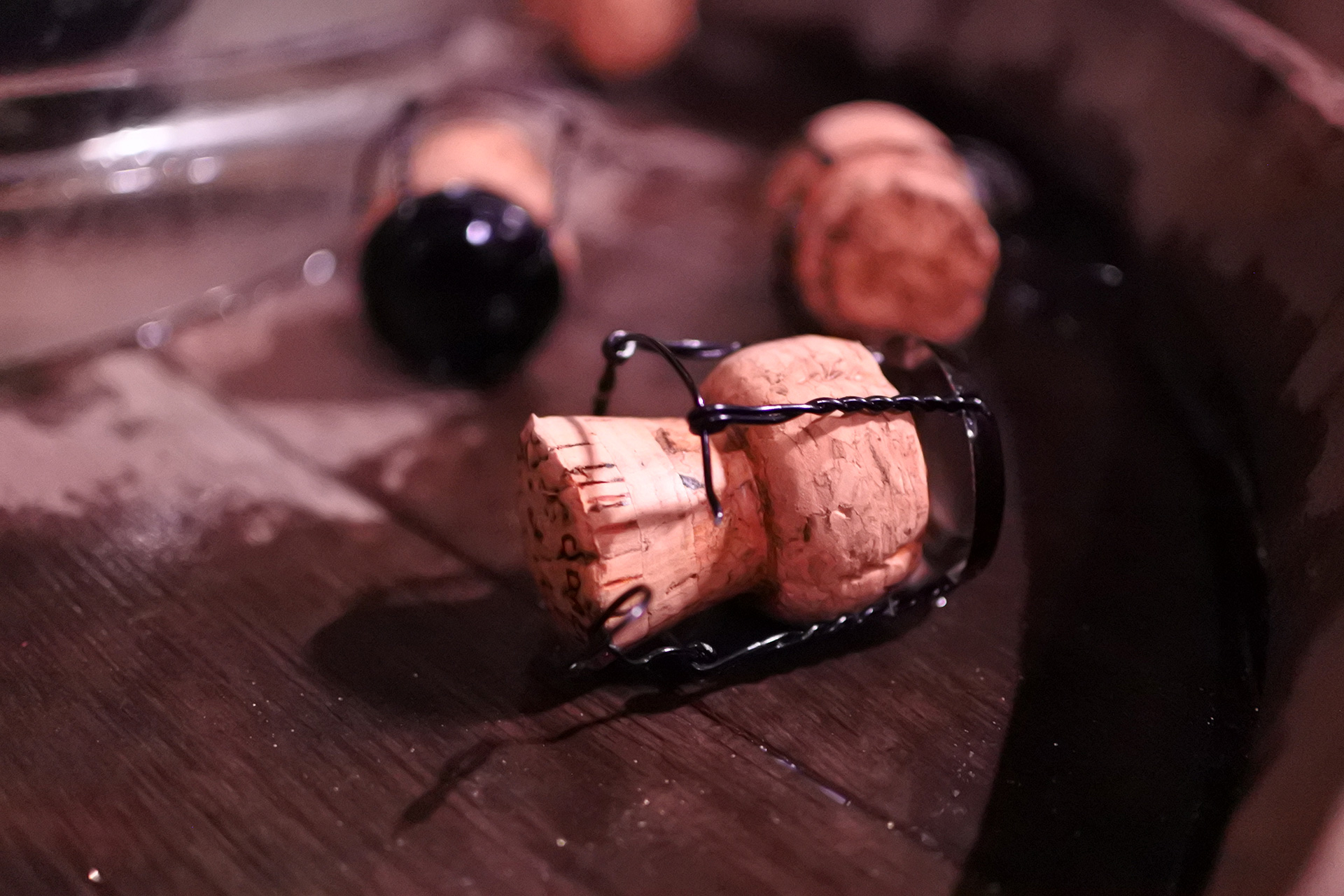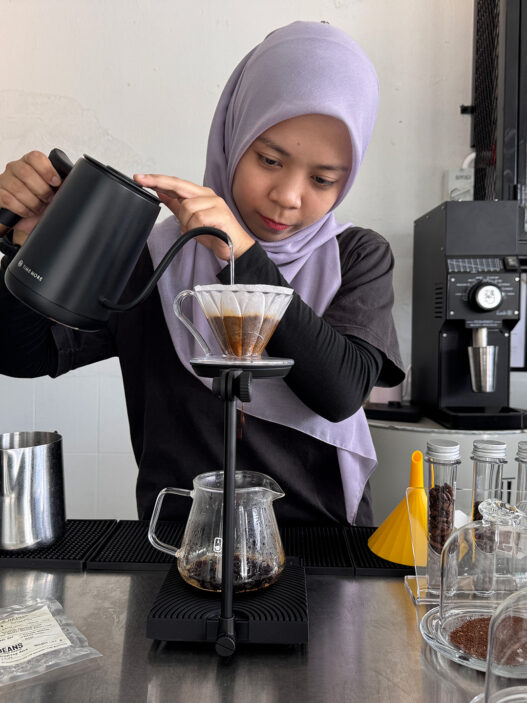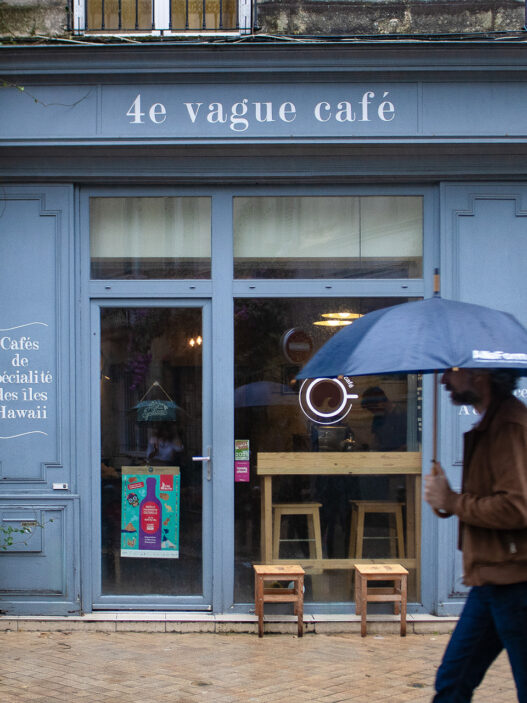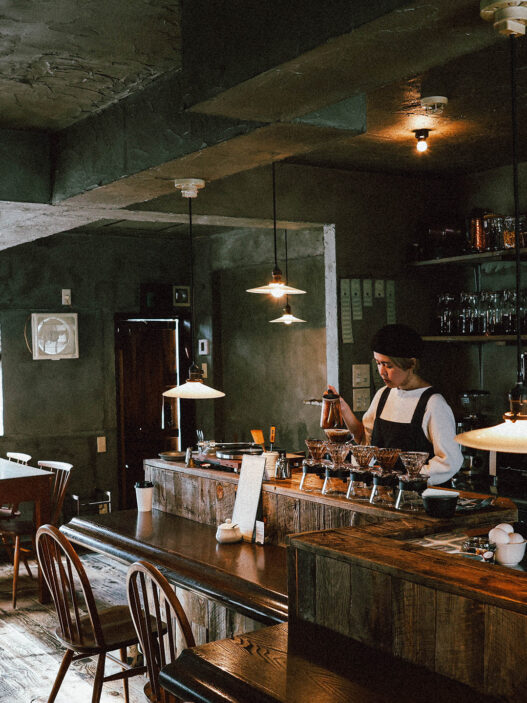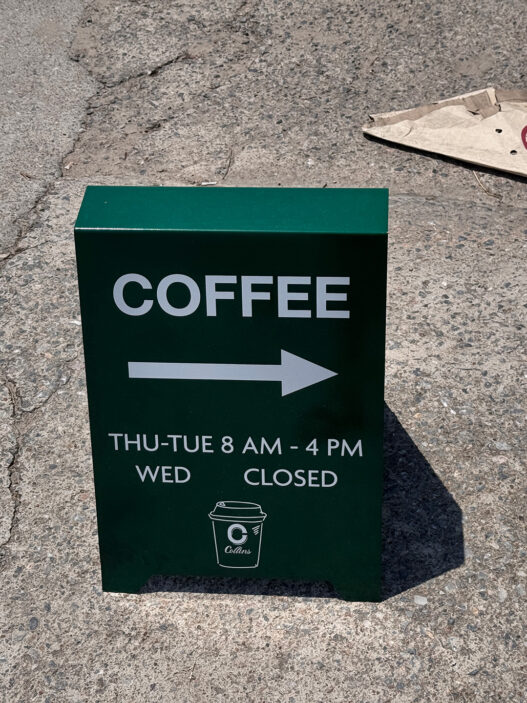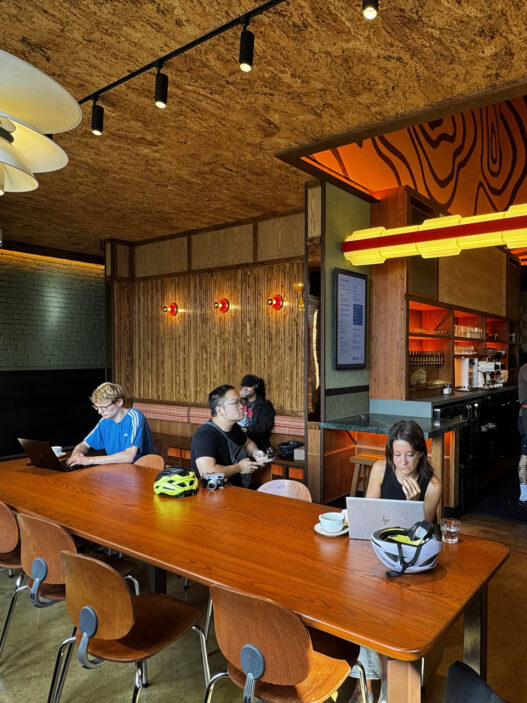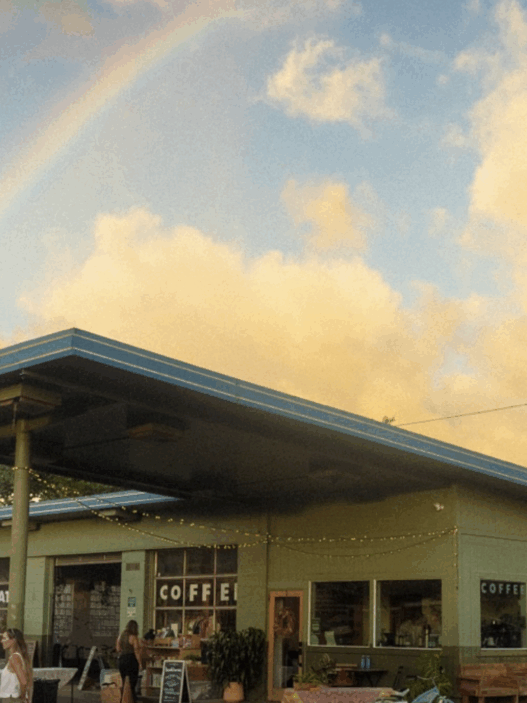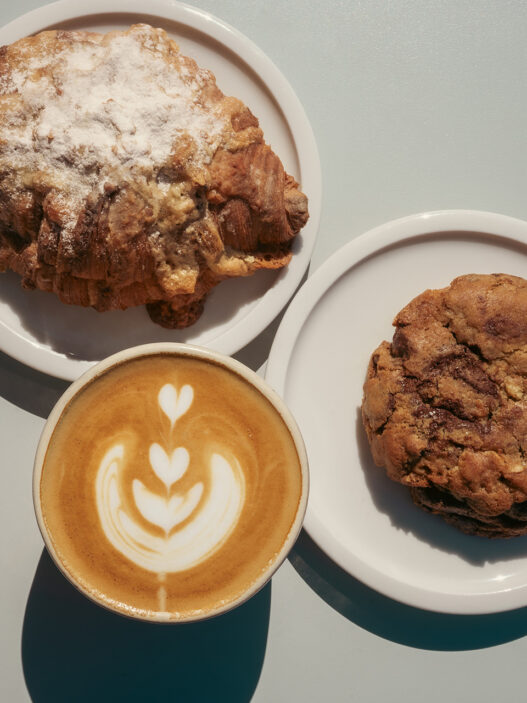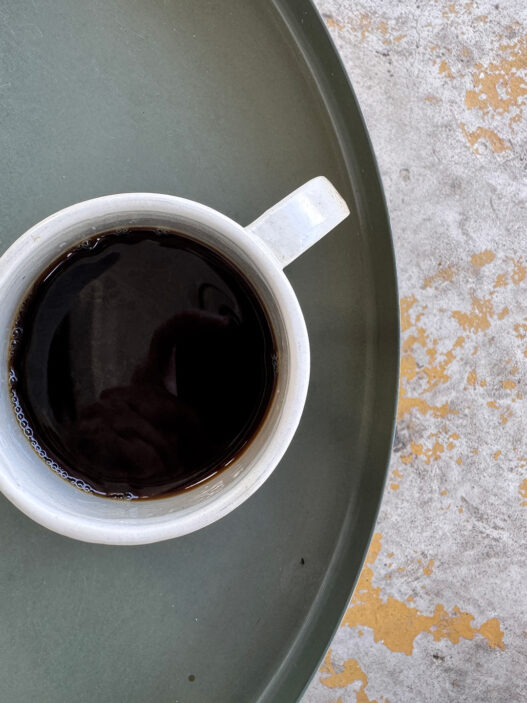Located northwest of the Han River, the area around Hongik University (known by the metonym of Hongdae) in Seoul’s Mapo district is home not only to the most renowned arts school in South Korea, but an ever-vibrant and youthful nightlife. Some folks may recognize Hongdae as the backdrop for the famous Korean drama The 1st Shop of Coffee Prince. Perhaps unsurprisingly, the real-life neighborhood is home to a bustling cafe scene. Hongdae’s reputation precedes itself, and depending on the time of your visit, the energy on the streets can be relaxed or animated.
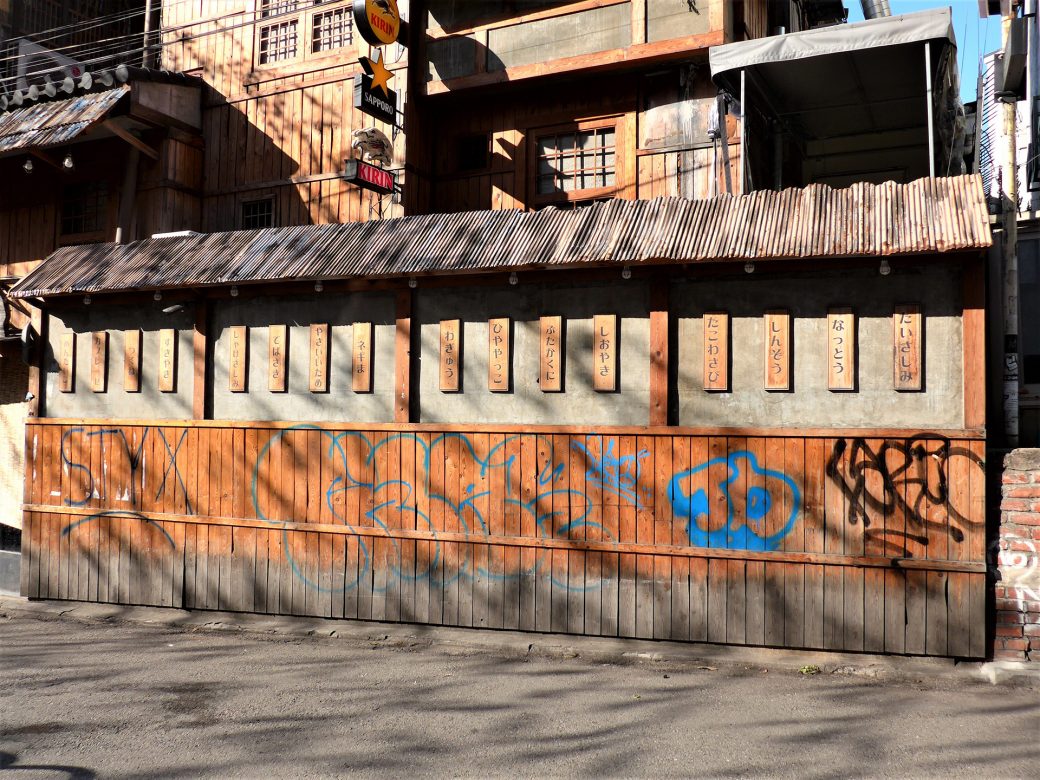
Wandering around during the daytime in the Mapo district on a recent visit to Seoul, I found five distinct cafes providing a range of sensory experiences, from the coffee to the ambience. Whether you’re looking for a place to enjoy music while chatting with friends over an indulgent affogato or a soothing and meditative space to browse through magazines while sipping a mocha, you’d be hard-pressed not to find your next favorite cafe here. Enjoy a great cup of coffee among locals and tourists alike in one of Seoul’s most beloved destinations for all things indie, from arts and music to nightclubs and food.
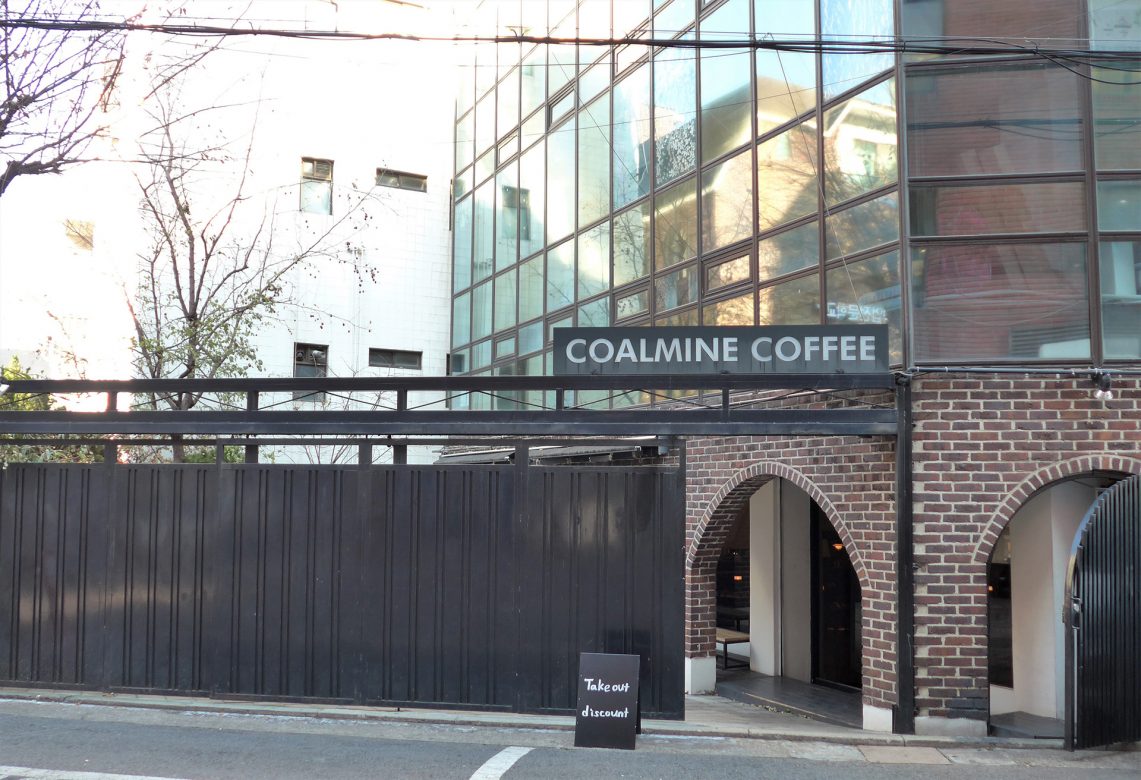
Coalmine
Coalmine Coffee has a coziness that was especially welcome when I dropped by on a blustery cold December morning. Even walking into the cafe feels like going to see a friend; you go through a gate and a small courtyard to enter the warm and inviting space, cozily lit by glowing lamps strung on the pale, wood-paneled ceiling and scattered over the tables. I can imagine the benches and seating outside would be wonderful during the warmer months. However, it was a chilly winter day and I sipped my delicious espresso con panna indoors.
Coalmine serves single origins or blends in their espresso drinks, single-origin brewed coffee, cold brew, teas, and cakes (including a rotating monthly cake). I appreciated being able to choose between two blends for my espresso con panna: option A was a medium light roast with “floral, fruit, and silky textured” notes, while option B was medium dark with “classic, nutty, and dark chocolate” flavors. The counter was staffed by a friendly but unobtrusive barista who obligingly made recommendations when requested. As demonstrated by the different customers in the cafe, Coalmine is an equally great space for quietly working, reading a book, or mingling with friends.
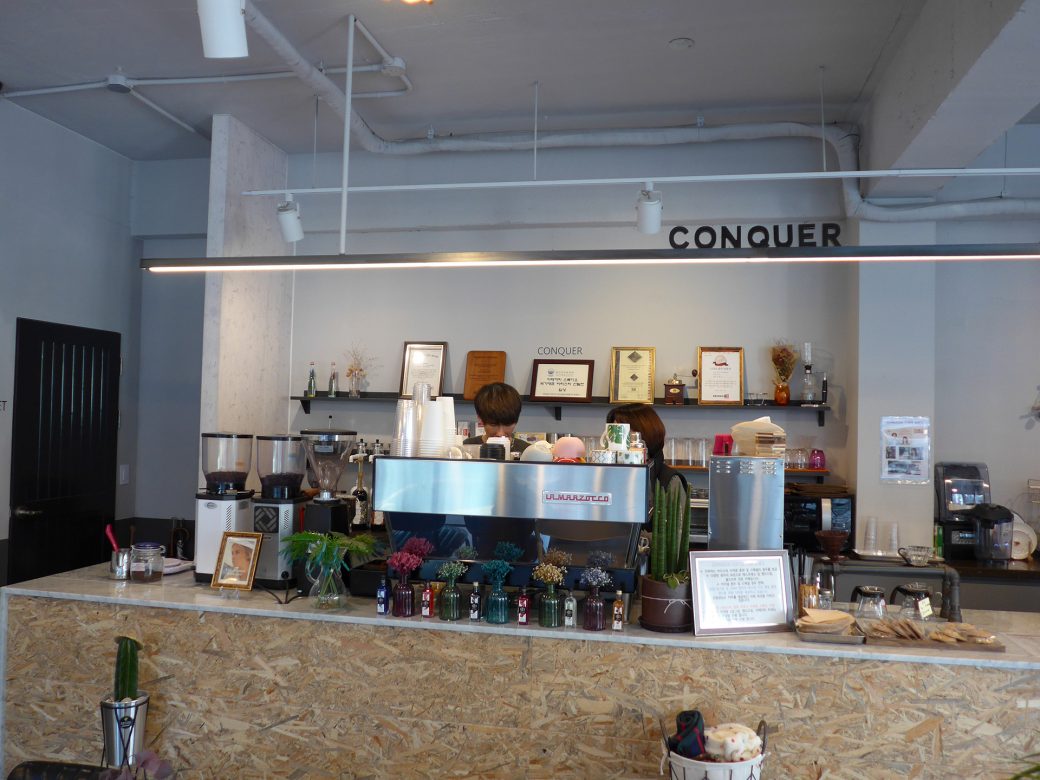
Conquer Coffee Lab
Although Conquer Coffee Lab just opened in July, Lee Chang Mi (one half of the married duo who owns the cafe) has worked in the coffee business since 2004. Conquer serves espresso drinks, hand drip coffees, teas, and desserts. Lee’s passion for coffee was evident when I chatted with her over the counter as she explained the different coffee options, with selections from South America (Brazil, Colombia, and Guatemala) and Africa (Ethiopia and Kenya).
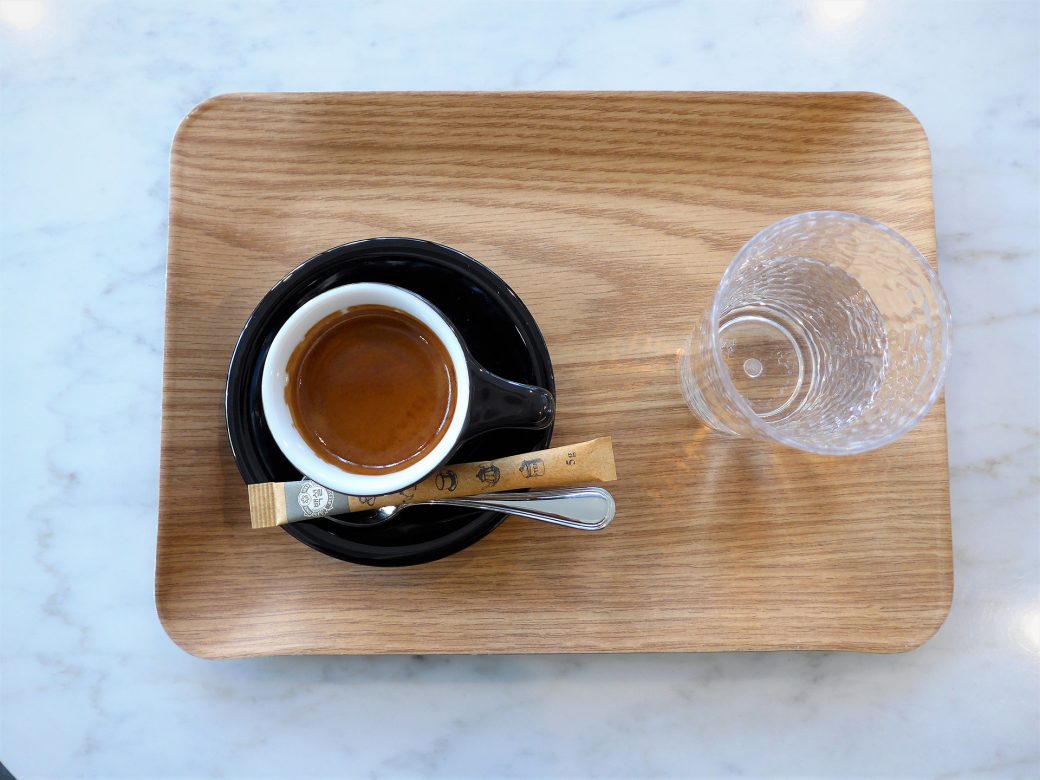
When asked about the coffee tastes of Conquer’s clientele, Lee said that most of her Korean customers prefer dark roasts, while she herself is a fan of the third wave. On Lee’s recommendation, I ordered a cup of the Ethiopia Kochere coffee that was fresh and lightly acidic. Lee is keen to expand her coffee expertise and share the knowledge with customers. It should be interesting to see how Conquer develops as the owners become more established in the space.
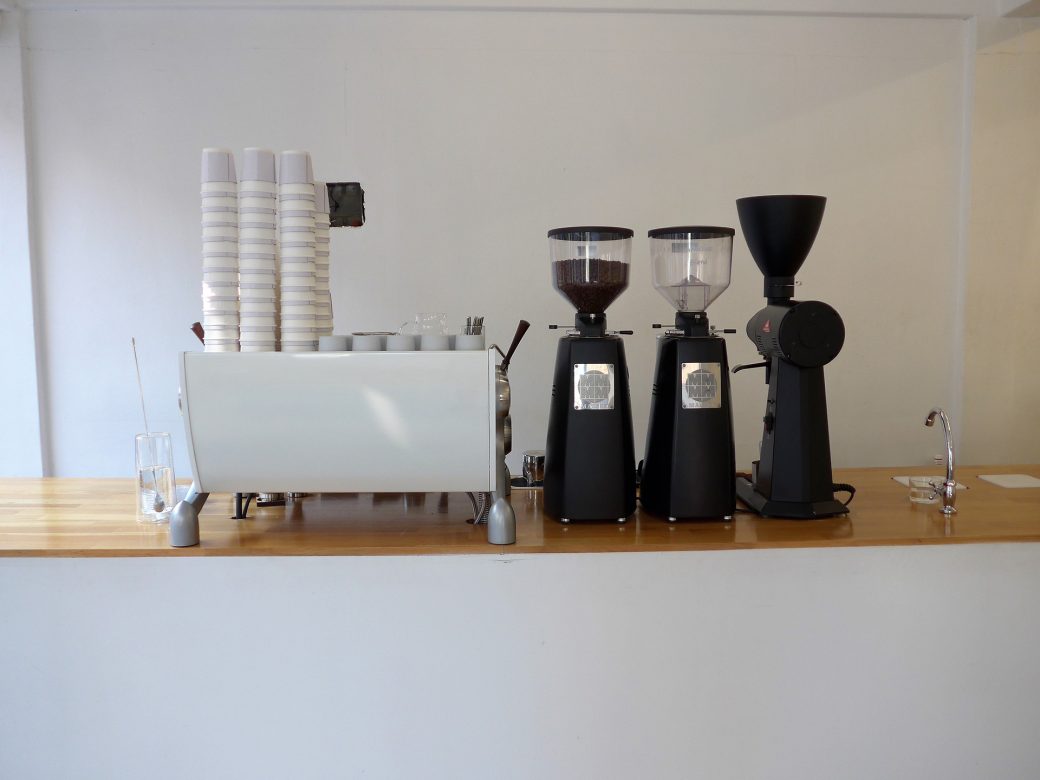
Felt
I nearly walked past Felt and had to double check I was in the right location before I realized the sparely appointed storefront was the cafe I was searching. Minimally decorated with records and a stereo system, Felt has the feel of a beloved music store. The seating is made up of long benches pushed against the floor-to-ceiling windows instead of traditional tables and chairs. The drink menu is as carefully edited as the space, offering six drink choices plus an affogato option, and is priced fairly (ranging from ₩4,000 to ₩6,000, roughly $3.75 to $6). The barista mentioned that Felt roasts its own beans, and bags of coffee ranging from ₩10,000 to ₩16,000 ($10 to $15) from Brazil, Costa Rica, and El Salvador are available for purchase. During my visit, I enjoyed sipping a well-balanced latte while leaning against the windows, relaxing, and soaking up the bright sunshine beaming through the glass.
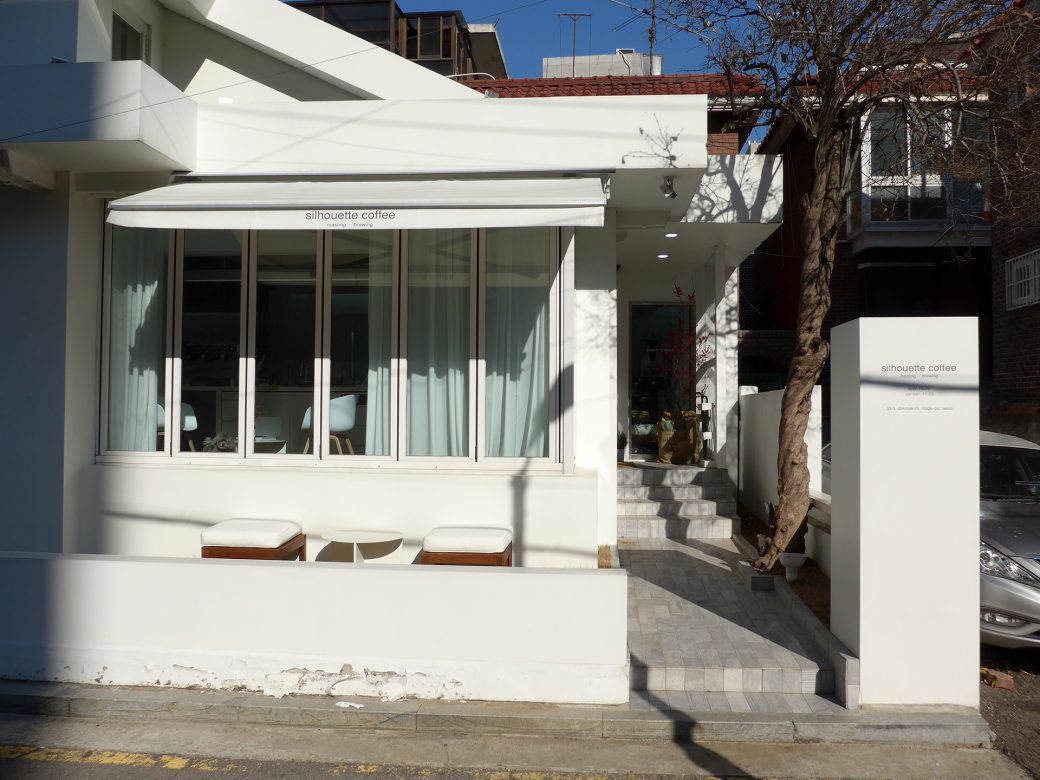
Silhouette Coffee
While it’s been merely six months since Silhouette Coffee opened its doors, the cafe already has a striking presence. After being greeted at the door by owner Choi Gil Soo’s adorable dog, I asked about the cafe name. Pointing to the full-length white curtains enveloping the large windows, Choi explains how he was inspired by the beauty of the view of the silhouettes of people and things against those curtains from the outside in. Choi roasts his beans in-house, and the menu is varied, from standard espresso drinks, brewed coffee (hand drip, siphon, or French press), flavored milks, juices, teas, and even beers from Belgium, Denmark, Germany, and the US. The doppio I ordered immediately flooded my veins with caffeine, but I could also imagine lingering longer over any of the other drinks while lounging on one of the cushioned seats.
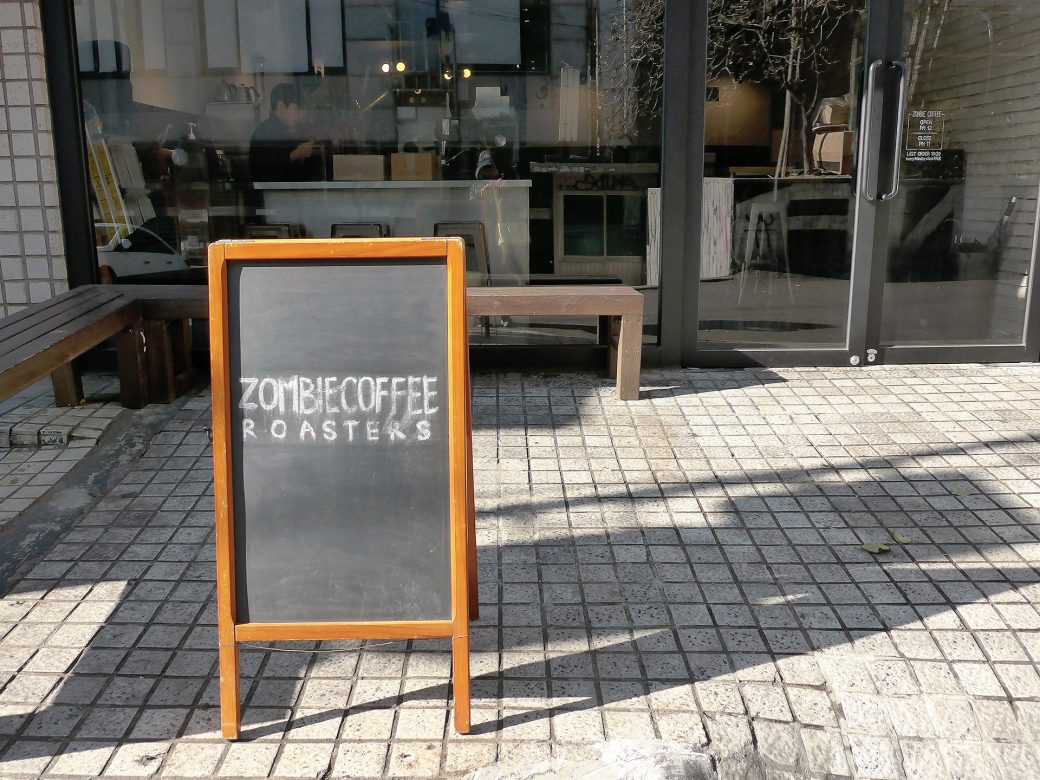
Zombie Coffee Roasters
As an avowed coffee addict, I admit that I feel like a zombie before that first blessed cup of coffee. Situated on a scruffy side street, Zombie roasts its coffee on the premises and offers drinks and beans for sale (₩10,000 to ₩17,000). Like its coffee, Zombie’s interior is on the darker side with brick, black and white walls, and concrete floors. I glanced at the menu, which has espresso drinks, brewed coffee, fruit drinks, shakes, and teas, before opting for a deliciously creamy cappuccino. The other customers were a mix of folks bent over their laptops on the tables toward the back of the cafe, or people sitting on the stools around longer communal tables while chatting and relishing their coffee break. Since it was winter, the outdoor seating wasn’t available, but I can imagine that it would be pleasant to enjoy some Zombie outside during the warmer months.
Michelle Hwang is a writer who splits her time between California, Paris, and Seoul.




